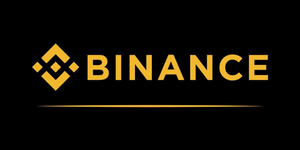-
Bitcoin Price: $99,628
5.11%
-
All-Time High: $108,786.00
8.41%
- 24h High / 24h Low: $105,224 / $97,792
-
Market Cap: $1,976,203,258,961
5.01%
- 24h Volume: $79,335,098,458
The most common misconceptions about Bitcoin and cryptocurrency

Source: Unsplash.com
Bitcoin and cryptocurrency are still relatively new concepts, and as a result, there are many misconceptions about them. In this article, we will explore some of the most common misconceptions about Bitcoin and cryptocurrency, and provide accurate information to help clear up any confusion.
Misconception #1: Bitcoin and cryptocurrency are illegal
One common misconception is that Bitcoin and cryptocurrency are illegal. However, this is not true. While the legal status of cryptocurrency varies from country to country, in most cases, it is not illegal to own or use Bitcoin or other cryptocurrencies. In fact, many countries have taken steps to regulate and legalize cryptocurrency, recognizing its potential as a legitimate financial instrument.
Misconception #2: Bitcoin and cryptocurrency are anonymous
Another common misconception is that Bitcoin and cryptocurrency are completely anonymous. However, this is not the case. While it is true that Bitcoin and cryptocurrency transactions do not require users to provide their personal information, all transactions are recorded on the blockchain, which is a public ledger. This means that while users may not be personally identifiable, their transactions are still transparent and can be traced.
Misconception #3: Bitcoin and cryptocurrency are not secure
Some people believe that Bitcoin and cryptocurrency are not secure, but this is not true. In fact, the blockchain technology that underlies Bitcoin and other cryptocurrencies is highly secure, making it difficult for hackers to steal funds or manipulate the network. While no system is completely invulnerable to attack, the security measures in place for Bitcoin and cryptocurrency are robust and have proven effective in protecting users’ funds.
Misconception #4: Bitcoin and cryptocurrency are a Ponzi scheme
A Ponzi scheme is a type of fraudulent investment scheme in which returns are paid to earlier investors using the capital of new investors, rather than from any actual profit earned. Some people believe that Bitcoin and cryptocurrency are similar to a Ponzi scheme, but this is not true. Bitcoin and other cryptocurrencies are based on blockchain technology, which is a decentralized and transparent system that does not rely on a central authority to generate returns. While it is possible for individual cryptocurrency projects to be fraudulent, Bitcoin and cryptocurrency as a whole are not a Ponzi scheme.
Misconception #5: Bitcoin and cryptocurrency are only used by criminals
Another common misconception is that Bitcoin and cryptocurrency are only used by criminals. While it is true that some criminals have used Bitcoin and other cryptocurrencies to facilitate illegal activities, such as money laundering or drug trafficking, this is not the only use for these technologies. In fact, many law-abiding individuals and businesses use Bitcoin and cryptocurrency for a variety of legitimate purposes, including making online purchases, transferring money internationally, and as an investment.
Common misconceptions about Bitcoin and cryptocurrency debunked
Bitcoin and cryptocurrency are still relatively new and misunderstood technologies, and as a result, there are many misconceptions about them. In this article, we have explored some of the most common misconceptions about Bitcoin and cryptocurrency, and provided accurate information to help clear up any confusion. While Bitcoin and cryptocurrency do have some unique characteristics and risks, they are not illegal, anonymous, insecure, or a Ponzi scheme, and are used for a variety of legitimate purposes.
Disclaimer
This article does not provide investment advice. Historical cryptocurrency data is not a guarantee of future market developments. The author may hold several of the cryptocurrencies mentioned in this article.
Read more About
THIS WEEK’S
Trending Posts
-
 September 12, 2024
September 12, 2024The most common misconceptions about Bitcoin and cryptocurrency
-
 September 4, 2024
September 4, 2024Stablecoins: Financial stability or centralization?
-
 August 11, 2024
August 11, 2024Exploring the benefits and potential uses of Litecoin
-
 August 8, 2024
August 8, 2024Five reasons why Bitcoin is superior to FIAT money
-
 July 15, 2024
July 15, 2024Dogecoin: the internet's favorite cryptocurrency
SPREAD THE WORD
Share this Post
HAND-PICKED
Curated Cryptocurrency Posts
Didn't find the answer you were looking for?
Feel free to check our cryptocurrency market data or our comprehensive blockchain glossary.
















